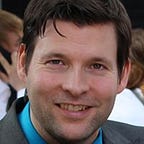Lack of Professionalism in US State Apparatus
There is a huge bureaucracy, which under regulatory capture theory, tends to make decisions that enlarge its own size and power and compensation while promoting the interests of the parties supposedly being regulated.
Exactly, that is one of the big problems. The US bureaucracy lacks professionalism. It is highly politicized, weak and corruptible. It is all to easy for political interests to corrupt the US state apparatus at various levels. Rich donors and companies can basically install their guys into bureaucracy.
One of the things Gunnar Myrdal writes about is how in Europe e.g. bureaucracies had developed over hundreds of years outside of democracy. Democracy then gradually took control over these bureaucracies, but they still where a world of their more based on talents and continuity than political whims.
In particular that is the case in Sweden where Gunnar Myrdal, was from. In Sweden political decision are made at the top level. But further down the system there is almost no political influence. Professionals and experts run the show. This can be both good and bad. One can see e.g. in Sweden today during the COVID19 crisis that the experts are pretty much in charge and the politicians are mostly on the sideline.
In the US in contrast democracy came before the bureaucracy or rather what had existed was part of the British oppression and highly distrusted. Hence early America tended to make a lot of positions elected.
You mentioned things like regulation but the area where elections was most noticeable and in particular in terms of institutionalizing racism is of course all the elected positions in the justice system. I thinking of positions such as sheriffs, judges, chief of police etc. This allows the prejudices or racism of a majority to easily spread into the justice system.
Unlike if you have an entirely professionalized system where the system is manned by career bureaucrats who don’t have to answer to the whims of a bigoted local electorate.
And of course elected positions lead to low quality and competence. In the US you can have people with minimal formal training becoming a judge.
It has been our clear experience in Norway that involving too many unprofessional people in important decisions does not work great. We have had two court systems for many years:
- An American style jury system, where commoners entirely decide the question of guilt.
- A mixed system of professional judges and lay judges. Meaning it is a little bit like a tiny jury but they are discussing the case with professional judges the whole way, and professionals are part of the final verdict.
Examinations of miscarriages of justice all through Norwegian history, showed that this almost always happened in the jury system. This is why we eventually got rid of it. It just didn’t work that well. Civilians are more likely to be swayed by emotions to judge innocent people as guilty.
